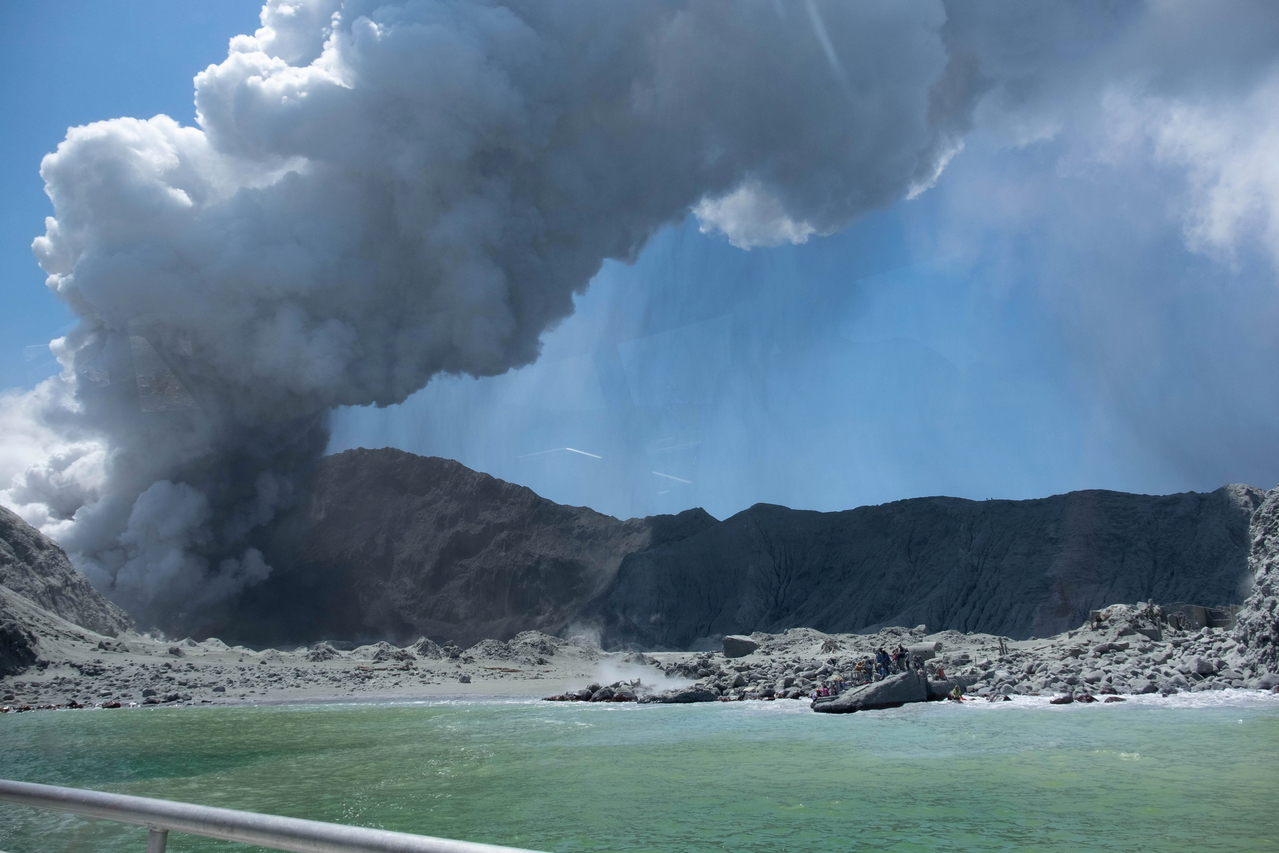New Zealand volcano eruption: Questions being raised over why warnings of heightened threat were ignored
Sign up now: Get insights on Asia's fast-moving developments

The eruption of the volcano on White Island, New Zealand on Dec 9, 2019.
PHOTO: AP
Follow topic:
NEW ZEALAND (NYTIMES, AFP, AP, REUTERS) - The threat level at a New Zealand volcano that erupted on Monday (Dec 9) had been raised in recent days, and questions are already being raised about whether it was safe for tour groups to visit.
People were allowed to visit the island even after GeoNet had earlier issued bulletins warning of "moderate volcanic unrest" with "substantial gas, steam and mud bursts" observed at the crater lake.
"We've issued two or three bulletins in the last few weeks about the increase in activity," Dr Brad Scott, a GeoNet volcanologist, said in an interview.
He said that even though the volcano has been erupting since 2011, tourists have been undeterred, with visits to the island dating to the late 1800s.
He said the agency passed its information on the volcano's activity to tour operators and police, but tourists make their own decisions about whether to visit the island.
"The weather has traditionally been the only thing that has stopped visitors," he said, noting that the volcano sits in the open ocean and people wanting to reach it have to contend with rough waters to make the journey.
New Zealand Prime Minister Jacinda Ardern said there were legitimate questions to be asked, but they could wait until the emergency response was complete.
"These questions must be asked and they must be answered," Ms Ardern said in Parliament.
"The focus this morning is on recovery and ensuring police can do that safely," she separately told a press conference.
Police said in a statement that they "commenced an investigation into the circumstances of the deaths and injuries" at the volcano.
However, they backed away from an earlier announcement that the probe was a criminal investigation, saying instead it was being carried out on behalf of the coroner.
"The eruption was unfortunate but not completely unexpected," said Dr Jessica Johnson, a geophysicist at the University of East Anglia.
She said levels of activity "have been relatively high since September, and even more elevated over the last couple of weeks", with small earthquakes and more volcanic gas detected than usual.
Royal Caribbean Cruises, one of the tour operators which had taken tourists to the island, did not say whether it had known of the warnings about the volcanic activity.
Royal Caribbean had sold a day trip to White Island as an "unforgettable" adventure to New Zealand's most active volcano, one that took visitors so close to the action they could require gas masks and hard hats.
The volcano is New Zealand's most active.
Dr Ken Gledhill, from the research institute GNS Science, likened the eruption to the volcano "clearing its throat" and said that while it looked like it had quietened down, authorities could not be certain there would not be another eruption within the next 24 hours.
Police have established a no-fly zone around the island and warned people living near areas that might be affected by falling ash to remain indoors and listen to the radio or television for news updates.
Ash fall can contain jagged particles of abrasive rock or natural glass and anyone exposed to it was advised to wear a dust mask or use a cloth handkerchief to cover their noses and mouths and wear goggles to protect their eyes.
The eruption was reported to have occurred at 2.11pm local time.
Directly after the eruption, GeoNet, the agency that monitors geological activity in New Zealand, raised its volcanic alert level to four. By about 4.30pm, it was decreased to Level 3, with the agency noting there was no further escalation in volcanic activity.
Volcanologists said the ash plume shot 12,000 feet (3,658m) into the air.
"White Island has been a disaster waiting to happen for many years," said Ray Cas, a professor emeritus at Monash University, in comments published by the Australian Science Media Centre.
"Having visited it twice, I have always felt that it was too dangerous to allow the daily tour groups that visit the uninhabited island volcano by boat and helicopter."

